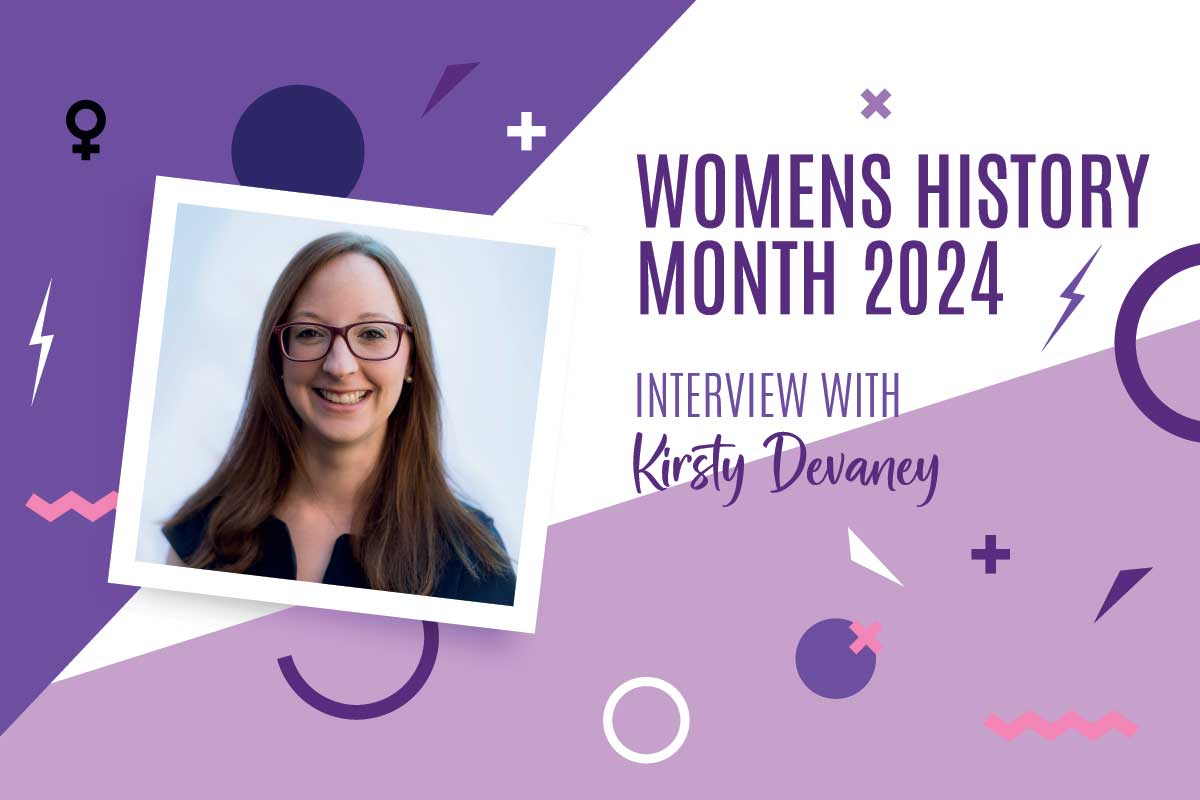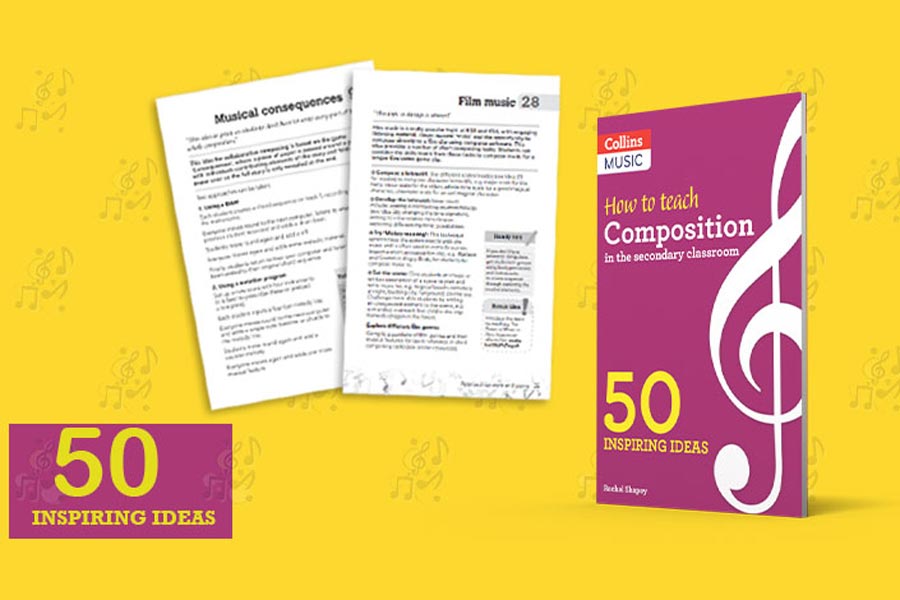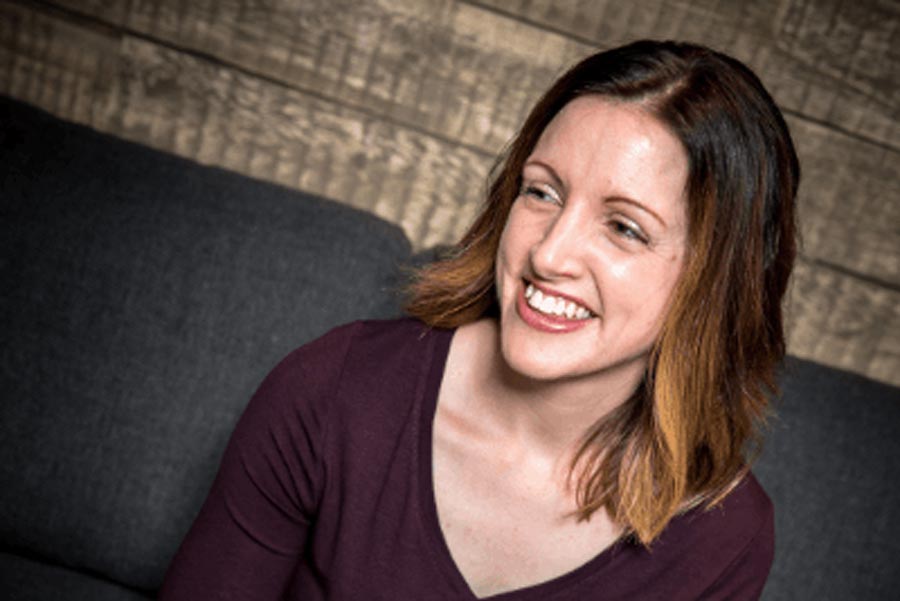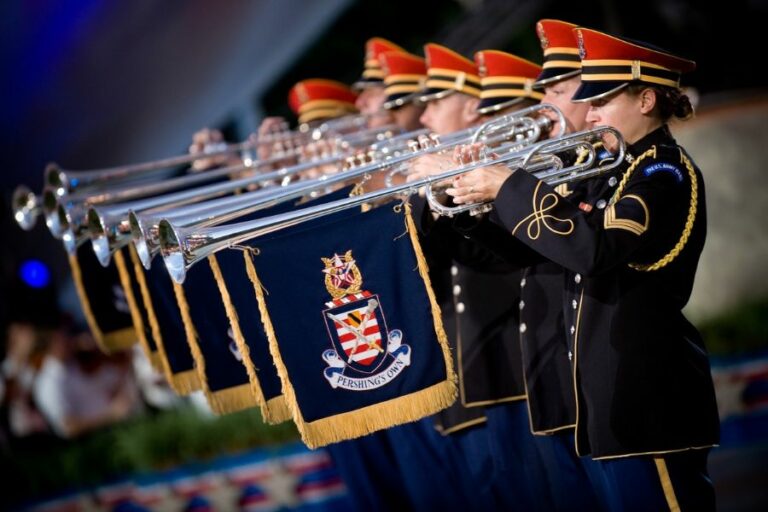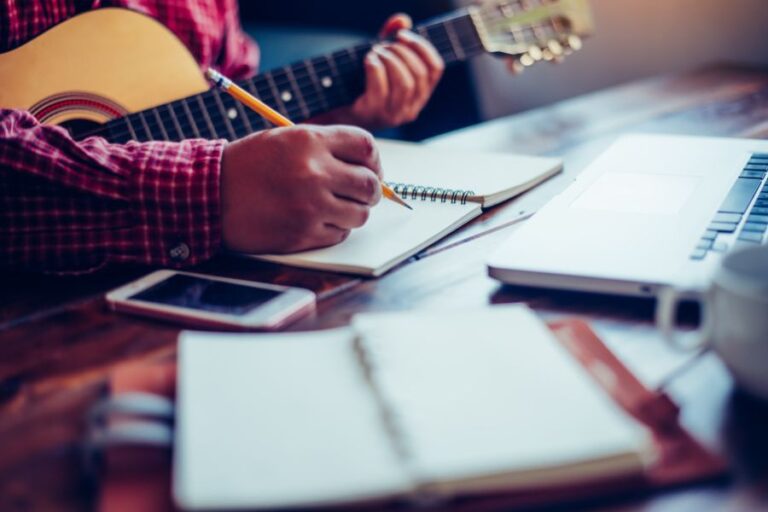Dr Kirsty Devaney shares her musical journey to being a composer and how she’s supporting young people with writing their own music…
Tell us about your musical experience growing up…
School played a huge part in where I’ve got to today. I started to play the flute after my primary school started to offer free instrumental lessons, but it was not until secondary school that I really started to take to music. I was fortunate to receive free lessons on other instruments and with the support of my classroom music teachers, I started to arrange and compose music. Growing up in West Cumbria, there weren’t a huge range of musical opportunities, but I did everything I could, and I even made my own projects, such as setting up a children’s Halloween poetry competition, which I set the winners texts to music for the local windband to perform with a narrator. These experiences of working with musicians with differing abilities has been a skillset I’ve used throughout my career.
Did you have a role model?
Whilst at school I was not really presented with female composers, and I didn’t even know that composing was something you could do as a career until I met Errollyn Wallen at a free BBC event for composers. It was here that I began to see composing as something I could go on to study and take more seriously. Away from music, my mum remains a key role model in my life.
How did you get interested in composing?
I started by arranging music. I noticed that the arrangements we used in school were not well suited for us to play, for example our school ‘orchestra’ had very few string players who struggled to play what was written, but a wonderful French horn and trombone player who were growing bored of their very simple parts. I made arrangements tailored to the skills of the musicians. Composing as part of my GCSEs and A-levels was also an important part in developing my skills and enjoyment.
Which piece are you most proud of and why?
The piece I am still most proud of is called ‘in memory’. It was the first time I really composed something for myself (i.e., not to try to impress an examiner or my tutors!). It only consists of three main chords and is completely stripped back and vulnerable. This piece had a huge impact on the music I would go on to compose in the future such as this piece ‘Gore Point’ which sets the text of John North:
Can you tell us about Fanfare for Gosport?
Fanfare for Gosport was a commission to work with an amateur brass band to compose a piece that celebrated the history of Gosport. I got to work with the ensemble for a year, so I got to know them really well. I wanted the piece to be something that they enjoyed but that also push them creatively compared to the repertoire that they were used to. The work included recordings sourced from around the local area and an interview with someone who used to work on the submarines. The piece also included aspects of improvisation and the first movement (Metal and Salt) has the ensemble playing pieces of metal to mimic the sounds of building a submarine.
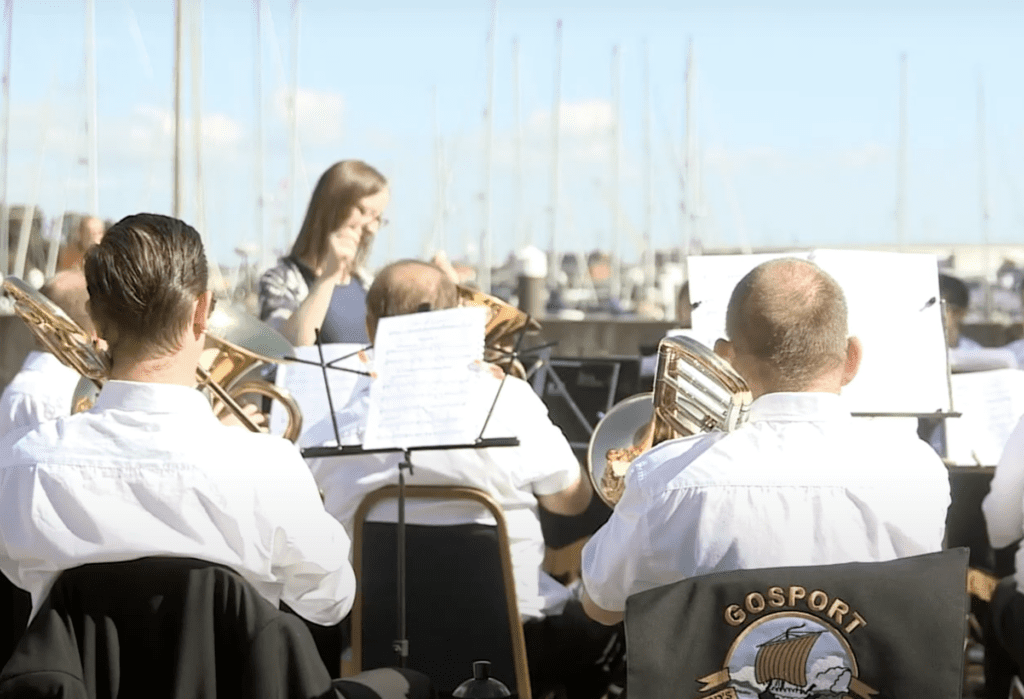
How is the landscape looking for women composers?
I feel that there has been some positive change even from when I started studying composition in 2009, to now. When I was studying at Royal Birmingham Conservatoire, I was one of very few young women and now I see a lot more young women composers studying composition which is great. I feel there is also much more talk about equality, diversity and inclusion and young people are able to speak out more about issues they see and experience. However, there is still a long way to go in terms of wider representation and barriers still exist for many young people who want to pursuing music as a career.
Your PhD focused on how composing is taught in the secondary classroom…why do you think it’s a difficult thing to teach?
My research found that the way composing is assessed within GCSE and A-level can make teaching composing much more challenging. The hundreds of teachers who took part in my research found that it was often the more creative approaches to composing that were ‘risky’ in terms of how it might be assessed, whereas more formulaic and western classical approaches to composing were deemed as safer for getting higher marks. Teachers has to navigate this not wanting to dampen the creativity of their students.
What is YCP?
I set up the Young Composers Project (YCP) in 2013 when I graduated. I noticed there was very little out there for young people interested in composing and creating their own music away from what they have to do in school as part of their examination. Therefore, I set up YCP to offer a creative and supportive space and community of young musicians. We have now had over one hundred young people come through the scheme, many who have gone on to study composing in higher education.
And finally what 3 tips would you give to aspiring young composers?
1) Get your music out there – whether that is composing for a local group of musicians, performing in an open mic night, or submitting your music to BBC introducing!
2) Be yourself – although it is important to be inspired by other musicians, don’t just try to replicate their style, instead see if you can combine styles and ideas to make it uniquely yours
3) Build a community – Find people with shared interests, who can offer supportive feedback and who want to see you succeed.
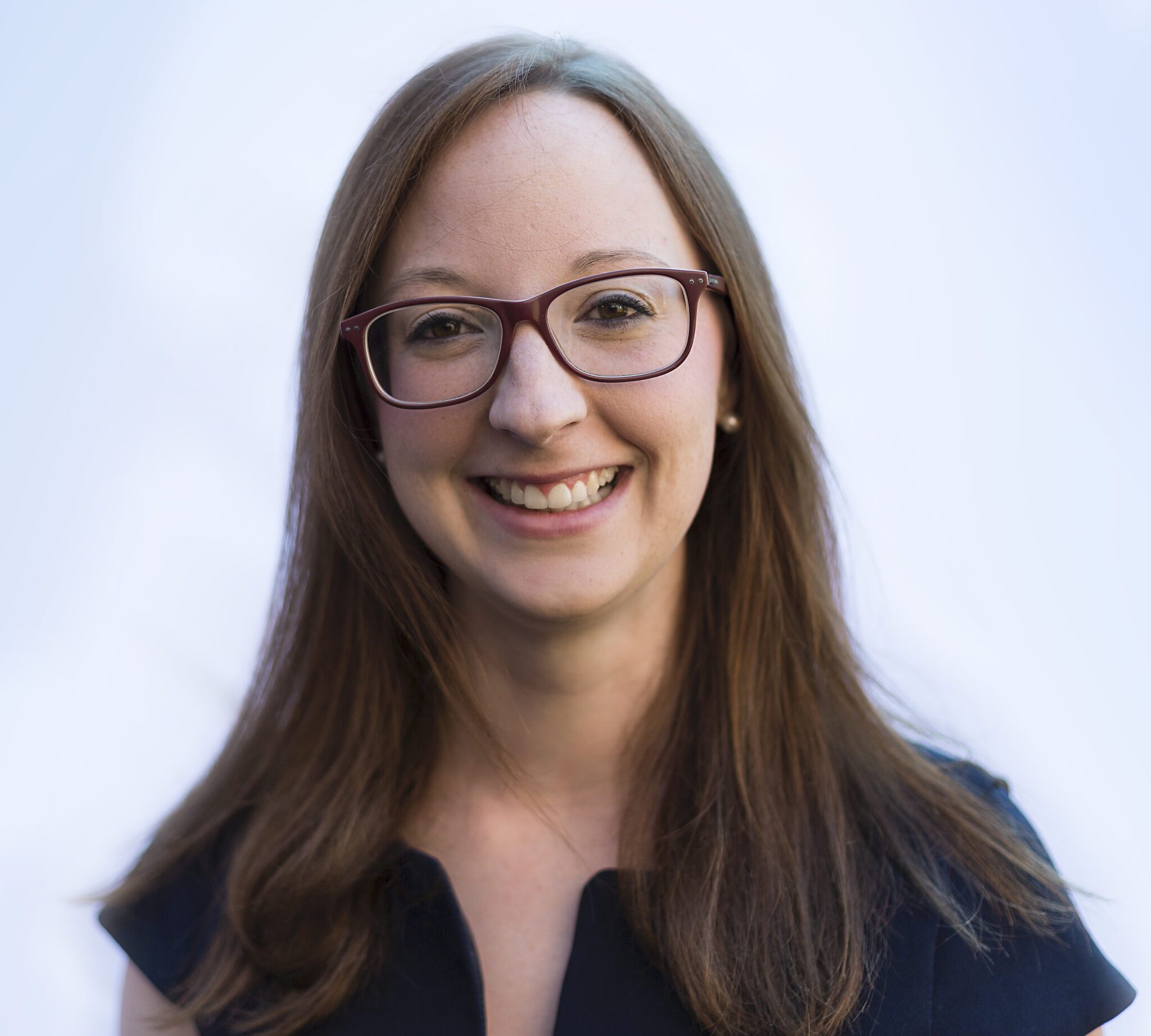
About Kirsty Devaney
Dr Kirsty Devaney is a composer, music education researcher, and lecturer at Royal Birmingham Conservatoire. Her compositions have been shortlisted for a British Composer Award, been aired on BBC Radio 3, and performed by professionals such as the London Symphony Orchestra. Her creative practice centres on collaboration with musicians, and she specialises in composing with and for non-professional and youth groups. Her teaching and research on composing in education, including founding the Young Composers Project at Royal Birmingham Conservatoire in 2013, has won awards and been presented at international conferences and published in academic journals.
